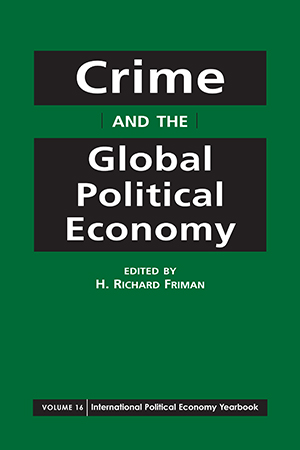
- 2009/215 pages
- International Political Economy (IPE) Yearbook, Vol. 16
Crime and the Global Political Economy
Hardcover: $55.00
ISBN: 978-1-58826-676-7
Paperback: $27.50
ISBN: 978-1-58826-742-9
Crime has gone global. Conventional explanations point to ways in which criminals have exploited technological innovations, deregulation, and free markets to triumph over state sovereignty. Crime and the Global Political Economy reveals a more complex reality.
Taking as a point of departure the fact that state and societal actors are challenged by—and complicit in—the expansion of criminal activities on a global scale, the authors demonstrate that the political, economic, and normative agendas of those actors lead to selective criminalization and diverse patterns of compliance with prohibition regimes. Crime, they convincingly argue, is an integral part of globalization, rather than simply its underside. Their work not only expands our understanding of global crime, but also pushes forward the boundaries of mainstream IPE on issues of globalization, transnational relations, governance, and sovereignty
Taking as a point of departure the fact that state and societal actors are challenged by—and complicit in—the expansion of criminal activities on a global scale, the authors demonstrate that the political, economic, and normative agendas of those actors lead to selective criminalization and diverse patterns of compliance with prohibition regimes. Crime, they convincingly argue, is an integral part of globalization, rather than simply its underside. Their work not only expands our understanding of global crime, but also pushes forward the boundaries of mainstream IPE on issues of globalization, transnational relations, governance, and sovereignty
No rights in South Asia.







